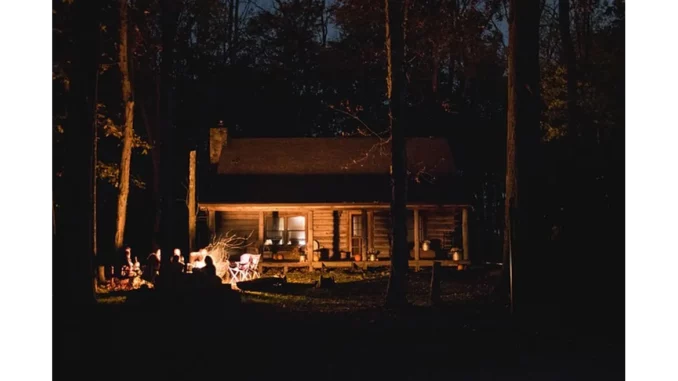
In the quaint suburbs of Nottingham, where the cityscape gently gives way to sprawling countryside, Emma Harper found herself in an unexpected predicament that many of us might relate to these days: cabin fever. Amidst the hustle and bustle of life, a sudden pause had brought a rare opportunity to Emma’s life — one that she hadn’t initially planned for.
I had the pleasure of sitting down with Emma, a lively woman in her mid-thirties, whose family experience in dealing with cabin fever led to a delightful revelation about the bonds that tie us and the power of a good book.
It all started, Emma recounts, on a particularly rainy afternoon when the clouds seemed to conspire to keep her indoors. “It was as if the world outside was frozen in time, yet inside, there was a constant buzz of restlessness,” she explains with a laugh. “My children, Jack and Lily, were bouncing off the walls and my husband, Tom, was knee-deep in work emails. It was chaos.”
Emma had heard the term ‘cabin fever’ before but always dismissed it as just another phrase until it became their reality. With everyone confined within the four walls of their home, normal routines had been disrupted, leaving a void that was palpable.
In what she describes as a moment of desperation mingled with inspiration, Emma reached out to her relatives for help. “I called my sister, Clare, and asked her to visit the local library for us,” she says. “I requested her to check out a massive stack of books — anything and everything that might capture our collective interest.”
Clare, understanding the plight, arrived a few days later with a treasure trove of literature. There were mysteries, adventures, historical novels, and even a few cookbooks. Emma’s eyes light up as she describes the scene. “It was like Christmas morning! The children dove into the pile, each pulling out a book that piqued their curiosity.”
The family’s evenings quickly transformed from distracted lounge sessions to immersive reading gatherings. Each family member found solace in the pages, and the stories became a bridge connecting their individual experiences. “It was amazing to see how the simple act of reading could bring us together,” Emma notes. “Jack would read a chapter from his mystery novel, and then we’d all take turns guessing the next plot twist.”
But as the days rolled into weeks, Emma realised that while the books were a temporary balm, the itch of cabin fever was still lurking. “We needed a change of scenery,” she confesses, “something to break the monotony.”
With a bit of planning and a lot of enthusiasm, Emma organised an outing to a nearby national park. “I wanted it to be a surprise, so I kept it a secret from the kids,” she shares. The anticipation built up to an almost tangible excitement, and when the day arrived, the family set out on their adventure.
“The fresh air was invigorating,” Emma recalls, her voice tinged with nostalgia. The family spent the day hiking, exploring, and enjoying a picnic amidst the serene beauty of nature. The outing rejuvenated them, offering a much-needed respite from the confines of their home.
Emma’s story is a testament to the resilience of the human spirit and the importance of connection, both with the people we love and the world around us. When I ask her what advice she would give to others experiencing cabin fever, she smiles thoughtfully. “Books are a great escape, but never underestimate the power of a change in scenery. Plan at least one outing, even if it’s just a simple walk in the park. It’s amazing how a little fresh air can clear the mind.”
As our conversation winds down, Emma reflects on the unexpected journey her family embarked on. “This experience taught us to appreciate the little things — the joy of a good book, the beauty of nature, and the strength we find in each other.”
Through Emma’s story, we’re reminded that cabin fever, while challenging, can also be an opportunity for growth and connection. Whether it’s through a stack of library books or an impromptu family outing, the antidote to restlessness might just be a new perspective away.
Diana Tahjmir


Be the first to comment